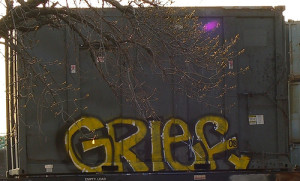
Richard Easterling, 2018
“A miscarriage is lonely, painful, and demoralising almost on a cellular level.” Michelle Obama, Becoming
The remarkable and accomplished former first lady’s candid statements about her personal loss are welcomed by many of us who have had the common, and often emotionally devastating, experience of miscarriage. By including this part of her life in her new book, Ms. Obama has helped to continue to push open the door to this national discussion about how we are affected by perinatal loss and what can help.
In an attempt to add a bit to this conversation, I’m attaching the following excerpt from my book At a Loss: Living and Growing After Miscarriage, Stillbirth and Infant Death. I think the technical term for my book at this moment might actually be manuscript, but it is complete and I’m working to find the right publisher. I’d like to also take this opportunity to extend a big thanks to everyone for your support of this project– your words and faith in the book have meant a lot to me.
______________________________________________________________________________
Chapter 4: Feeling Unseen
I don’t need a cloak to become invisible.
—J. K. Rowling, Harry Potter and the Sorcerer’s Stone
“We had a family gathering, and no one mentioned the baby.”
“It’s been weeks since anyone checked in with me to see how I’m doing.”
“I told my friend I was having a hard day, and she said she couldn’t understand why I was still so upset.”
When I was in my early twenties, one of my best friends lost her second child. She was at full term with a baby boy and found out just before delivery that he had passed away. I had recently moved from the Midwest to California and learned all of this from a distance. As the details came in, I was sad, horrified, and uncomfortably helpless. I was also, unfortunately, too naïve to really understand or empathize.
As a young, single woman who had no experience with pregnancy or parenting, I could only try to imagine what my friend was going through. It seemed surreal, like something that would happen to people I didn’t know. My heart ached for her, and I repeatedly made brief, awkward attempts to express my sympathy over the phone.
As I heard that my friend had named her son, visited his grave daily, and spent much of her day crying, I felt sympathetic—and then, within weeks, a bit uncomfortable and even judgmental. When the weeks turned into months, I continued to reach out with periodic, strained attempts at conversation, while my internal judgments grew louder. It seemed strange to me that she would grieve so intensely for someone who (I believed) had never truly been in the world. She didn’t really know him, right? She already had one living child and certainly could expect to have more. Could she be making too much of her loss? Was she somehow making it worse? Might she be committing the crime (as we Midwesterners tend to see it) of being raw and open about intense feelings?
Kenneth Doka coined the phrase “disenfranchised grief” to refer to the pain of certain types of losses that are commonly unrecognized or minimized by society. These include losses that society views negatively, such as loss of a loved one through suicide, and those that are somehow hidden, such as a miscarriage.
Another type of perinatal loss that happens to some of us are terminations due to a prenatal diagnosis, such as a chromosomal abnormality that is incompatible with life or seriously threatens the quality of life. These losses are often experienced as a disenfranchised grief. Abortion—even when it may not feel like a choice—is a loss that many in our circle may view negatively. It may lead those of us in this situation to not even tell friends or family about our pregnancy or how and why it ended.
Support from family, friends, and even strangers is one of the ways we humans get through grief. When you have to grieve without these expressions of care and concern, you may feel the added burden of isolation on top of the loss. If other people don’t validate your strong feelings, you may feel ashamed of them. You are, in a sense, grieving without permission and without the recognition that your loss warrants a full experience of mourning.
Sometimes the expression of care isn’t missing; it’s inauthentic or inept. This, too, can add to your pain and suffering. To my knowledge, no one has ever felt helped by hearing (or sensing from their friend’s unspoken communication) that she is overreacting to the loss of her baby. Grief is not a disease, it’s not a choice, and it’s certainly not something we can be talked out of.
In those moments when people just aren’t there for you, or when they minimize your pain, it can help to know that it may be because they just don’t understand your grief experience. It can also help to know that awareness of baby loss is growing and that whether or not you have met them yet, there are people on your planet who understand why you are feeling the way you are feeling.
Your loss is understandably devastating, and it may be taking up much of your energy. You are having your own experience of grief, and you don’t have to spend extra energy worrying that you are doing it right in the eyes of others. As Joanne Cacciatore writes in Bearing the Unbearable, “…if grief is a disease, so too must be love.”
 “Family isn’t something that’s supposed to be static, or set. People marry in, divorce out. They’re born, they die. It’s always evolving, turning into something else.” Sarah Dessen, Lock and Key
“Family isn’t something that’s supposed to be static, or set. People marry in, divorce out. They’re born, they die. It’s always evolving, turning into something else.” Sarah Dessen, Lock and Key
